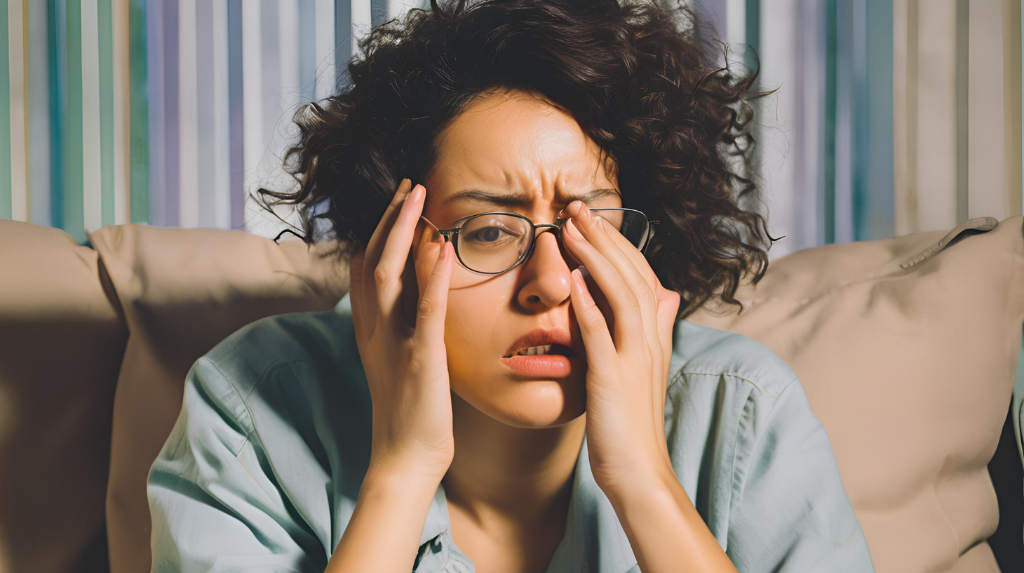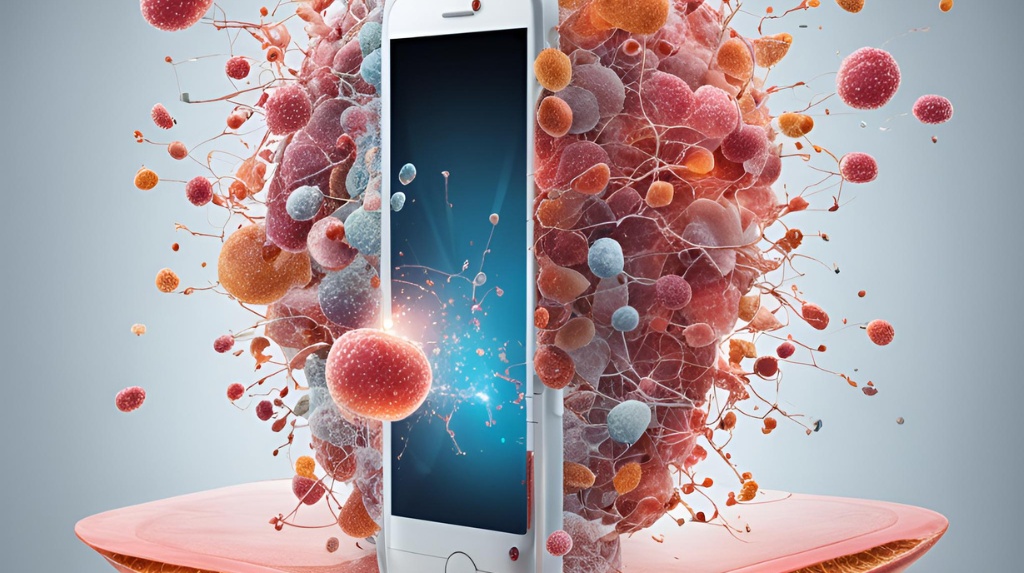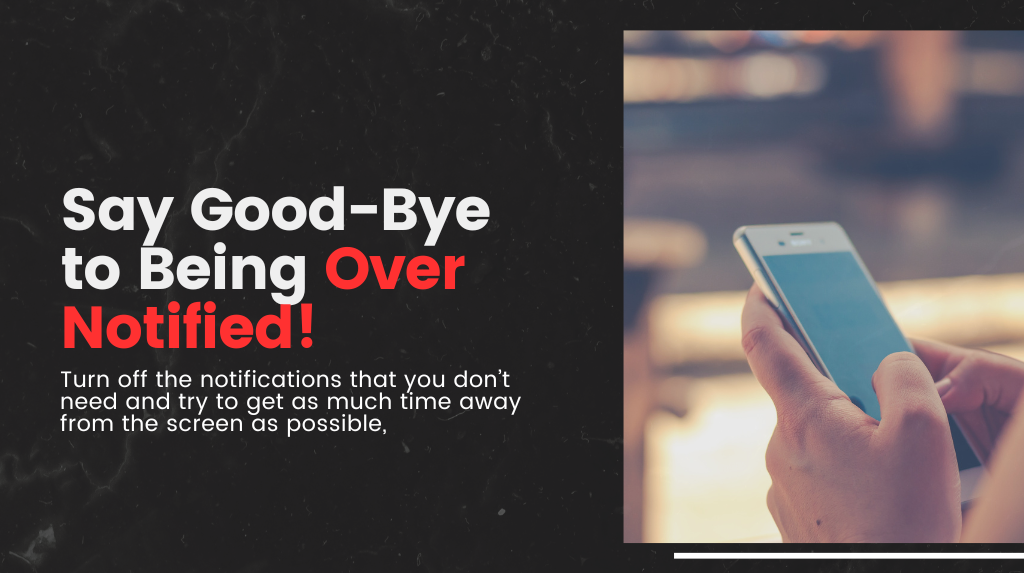Digital Stress
Category: Healthy Mind

Now that summer’s winding down I’m hoping you’re all getting settled into a good and healthy routine? It almost feels like “back to real life” once September hits doesn’t it?

Today I want to bring up a topic that might be a bit of a surprise to you, so let me start off by asking: Have you’ve ever thought about how the constant buzz of notifications and endless scrolling through social media could be affecting your cellular health? Today, we’re exploring the concept of Digital Stress, how it’s linked to cellular health, and covering some practical steps you can take to address this.

This subject is somewhat close to my heart in the sense that, just like you, I’ve felt the pressure of staying connected 24/7 so I think it’s good for us to explore how this modern stressor affects us on a cellular level as well as learning what we can do to change that for the better. Before we do this, let’s take a second to clarify what we mean by ‘digital stress.’

The term ‘digital stress’ describes the stress and anxiety resulting from our constant interaction with digital devices and social media. It’s not tied to a single origin but it reflects a broader trend as technology has become a central part of our lives, we do more and more online, and as we face information overload and the pressure to stay constantly connected, digital stress has become a significant concern impacting our mental well-being and cellular health.

In short it’s the anxiety and fatigue we experience from our relentless need to interact with screens and social media as we do more and more online these days.
Studies show that this constant engagement can lead to higher cortisol levels, (our stress hormone) and having elevated cortisol levels increases our oxidative stress and inflammation, which not only contributes to excess weight gain but also to the shortening of our telomeres—those protective caps on our DNA that are crucial for cellular health. Essentially, the more we’re stressed by digital demands, the more of a stress it is on our cellular health.

It’s a real issue and it’s something we need to address, which leads to the question: What can we do to manage digital stress? Well, we could do something like a Digital Detox… Start off by taking regular breaks from screens. I know, we all hear this and how it’s better for our eyes but the idea is to try to create tech-free zones or times for yourself or even your whole family, like during meals or before bed. This one small change alone can significantly reduce stress levels.

2. Mindful Tech Use: Set boundaries for your screen time. Commit yourself to enjoying some offline activities that promote relaxation, like reading a physical book or enjoying nature be it your yard, beach or a park. What’s one tech-free activity that YOU love doing? Share it in the chat, you never know, you might read someone else’s comment and find that it inspires you!

3: Balancing digital and real-world interactions is crucial. Prioritize face-to-face connections with your loved ones—these moments are vital for reducing digital stress while creating a stronger relationship.

4. You could also try incorporating relaxation techniques into your routine. Things like Meditation, deep breathing and yoga can help counteract the effects of excessive screen time and remember, do it without an app or recording on a screen. No screen!

Here’s a quick story: A friend of mine, Rachel, was feeling really overwhelmed with trying to keep up with her constant email notifications and social media updates so she decided to create a digital detox of her own by turning off all of the non-essential notifications and setting aside one day a week as a tech-free day. Within weeks, she noticed a significant reduction in her stress levels and felt more present and engaged with her family. This seemingly small change made a huge difference in her overall well-being.

Now if you’re like me where a day without a screen is rarely possible you could block off an hour or two here and there. As a lot of you know I speed walk a lot and the one thing that never comes with me is my phone unless I’m shooting video….I have my old school mp3 player with me instead because I love music. That’s my screen detox time and it’s so refreshing, would something like that work for you?

Understanding and managing digital stress is essential for keeping our telomeres and our overall health in check. I really hope you decide to try out one of these small changes this week to balance your digital and real-world interactions and if you do, please let us know what you did and how it’s helped you.

As for next week, we’ll look into the surprising effects of laughter and humor on cellular health. Yes, laughter really can be the best medicine for our cells, and I can’t wait to explore this with you! Before we wrap up, I’d love to hear your strategies for managing digital stress. Drop them in the chat—I’m excited to see what works for you! Remember, small steps can lead to significant improvements in your health. Thank you for taking the time to read this, I always appreciate it!



Facebook Comments